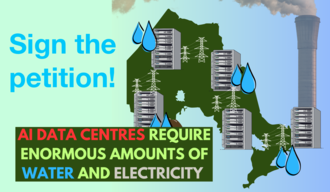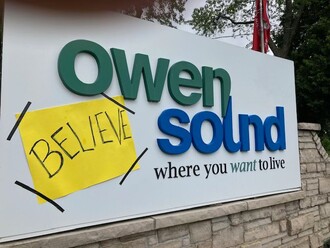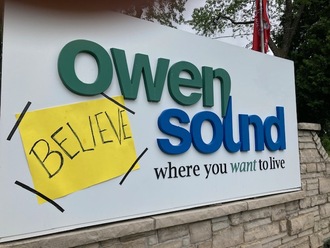-
Hootsuite: Cancel your contract with ICEHootsuite — a social media management company that profits from tools designed to track, amplify, and analyze online interactions — is now putting those tools in the hands of ICE. The Canadian-founded tech company is currently under contract with ICE — an agency synonymous with detention, deportation, family separation, and deaths in custody. Hootsuite’s CEO claims the deal doesn’t involve direct surveillance, but the same analytics and social-listening tools used by brands to track conversations and public opinion can also be used to map patterns, communities, and public response — tools critics warn can be repurposed for enforcement and profiling. Strip away the corporate language and it’s simple: Hootsuite is helping ICE do its job. Hootsuite knows exactly why people are furious — because they’ve been here before. In 2020, the company cancelled a similar ICE contract after employees and the public pushed back hard, openly acknowledging that working with an agency driving detention and deportation of immigrants conflicted with its values. But now leadership claims this contract is “different.” The backlash has been immediate and loud. Current employees have also been resigning in protest. Former staff, customers, and civil-rights advocates have strongly protested, with hundreds demonstrating dissent outside Hootsuite’s Vancouver headquarters just last week. The message is clear: partnering with ICE is a choice — and Hootsuite is choosing profit over people. We call on Hootsuite CEO Irina Novoselsky to immediately end all contracts with ICE, DHS, CBP, and any related immigration enforcement agencies, and to publicly commit to never doing business with ICE again. If you believe tech companies should not help power detention and deportation, sign this petition now.6,771 of 7,000 SignaturesCreated by Kayla Zander-Nuñez
-
Tell Burnaby City Council to Say Yes to Supportive HousingLike every other major city in BC, Burnaby is experiencing an affordability and housing crisis. The good news is that BC Housing, in partnership with the City of Burnaby and Fraser Health, has proposed to build approximately 50 new homes at 5389 Imperial Street in Burnaby. The bad news is that this project has faced opposition based on a campaign of misinformation. Opponents to housing are creating fear by inventing imagery of "drug dens," being dishonest about what supportive housing is, and making up hateful lies about all low-income people and people who use drugs. Many of those opposing the supportive housing are conservative politicians and in the real estate industry. What is Supportive Housing? “Supportive housing provides a home with on-site support so people can keep their housing. Complex Care Housing provides health services for people, like doctors, nurses, counseling, and cultural supports. ” Ninety-five percent of people in supportive housing are able to stabilize and build community in their neighbourhood, access their own education and income, and pursue other dreams. Supportive housing reduces harm related to substance use by providing access to medical care and services. Property values surrounding supportive housing sites typically keep pace. Plus, the cost of providing supportive housing is actually much less than the cost of forcing people to stay unhoused by reducing emergency health care and hospital costs. And dignity is priceless! We Are Burnaby Residents Who Want Housing for All! “Housing is a human right and a critical stabilizer in every person's life. Supportive housing is urgently needed in our city to keep everyone safe. ” Homelessness is not an individual failure, it is a policy choice. A life or death policy choice: the average life expectancy of an unhoused person is BC is half the provincial average at 40-49 years. We are in a housing crisis and 10-year-long public health emergency of the drug poisoning crisis. Indigenous peoples are most harmed by both these crises. But these crises can be solved! We can have a city where all our neighbours are safe, warm, and have stable housing and healthcare. Tell Burnaby City Council to say yes to the supportive housing proposal at 5389 Imperial Street!458 of 500 SignaturesCreated by Burnaby Community Safety
-
Save Ontario's Conservation AuthoritiesShrinking 36 Ontario Conservation Authorities (CAs) to 7 monster CAs will threaten our drinking water and our homes from flooding. We will lose our local expertise, and hands-on monitoring to protect our widely varied watersheds, our drinking water, and our flood protections. 85 % of Ontarians depend on our CAs to protect their drinking water. Our CAs maintain and monitor over 900 dams, dykes, channels & erosion structures & care for the wetlands that filter our water and cool summer's heat. Ontario's Conservation Authorities are funded about 53% by surrounding municipalities, local citizens funding 35% (with small fees and fundraising.) The province only contributes 5 - 8% to fund them: a unique watershed-based system. This amalgamation means our cities & townships will lose the governance of their own money, despite funding the CAs. For example, in the proposed new "St. Lawrence CA" which will merge 5 large CAs into one, there are 70 municipalities with elected council members on those CA Boards. The Ontario Environment Minister states they will appoint a central committee to oversee all CAs. The province states they want to amalgamate all the CAs to streamline the permitting system for developers. Instead, the province could create a computer program to deal with permits province-wide, send it to the CAs with new computers, & train people there to use it. (Then, we have to cross our fingers and hope the province does not start selling off our publicly owned Conservation Areas to developers, as they are doing to Wasaga Beach Provincial Park.)429 of 500 SignaturesCreated by J Jerreat
-
Canada’s Peace PetitionConflict around the world is escalating, and people are looking for real alternatives to violence. The International Peace Charter offers a principled path forward - rooted in dialogue, reconciliation, justice, and human development. When we come together, we can show our government that Canadians want peace to be at the centre of our national leadership. Join in signing the Canadian House of Commons petition: Petition e-6869 - Petitions6 of 100 SignaturesCreated by Laurent Sevigny
-
Support a Strong Climate Action Plan for TorontoThe City of Toronto adopted a climate action plan called TransformTO in 2017, in 2021 the city accelerated its TransformTO targets in line with the climate emergency that was declared in 2019. The first 5 year plan approved in 2021 is in its last year and City Council will have a new climate plan coming to its December meeting (Dec 16). City Council needs to know that thousands of Torontonians support an ambitious climate action plan. Residents of Toronto have already begun to feel the impacts of the climate emergency that the City declared in 2019. Major flooding events, an increasing number of heat days, and air quality decreasing to unhealthy levels from pollution and forest fires have already affected our cost of living, our health and overall day to day movements. In order to meet the challenges caused by a warming planet Toronto must continue and accelerate its commitment to NetZero by 2040. We encourage all councillors to adopt a bold, equitable and strategic plan for mitigating and adapting to this crisis and support TransformTO 2026-2030. We will present our petition of support to City Council on December 16. Help build a healthy, low-carbon, climate-resilient city where we can all thrive. Please sign and share this petition.350 of 400 SignaturesCreated by Lyn Adamson
-
Build Supportive Affordable Housing at 1499 and 1501 Queen WestThe City of Toronto, and Canada as a whole, is in an unprecedented affordable housing crisis. Many struggle to find safe and stable housing in Toronto and Parkdale Activity-Recreation Centre (PARC) wants to be proactive in housing our at-risk community members and has proposed to build 140 new affordable supportive homes at 1499 and 1501 Queen St. West. Right now, PARC is facing opposition from a group of neighbours in Parkdale who want to reject our proposed development. PARC has been part of the Parkdale community for more than four decades. We already operate supportive housing at 1499 Queen and nearby buildings. We want to replace an aging building with safe, private self-contained units, indoor programming space, and onsite supports to reduce crowding on the sidewalk, and create more dignity, safety, and stability for our community members and neighbours alike. Supportive housing does not negatively impact communities. Instead, it can enhance community stability and reduce crime rates by providing stable housing environments for vulnerable individuals. This proposal will provide stable and supportive homes to those who need long-term housing. Supportive housing is one of the solutions to homelessness, and offers stability, on-site resources and ensures the safety of tenants and the neighborhood they are in. It combined affordable rent with supports, allowing tenants to heal, recover and contribute to their communities. What is PARC’s proposal? PARC is proposing to build a total of 140 units divided between 1499 and 1501 buildings, as well as enhancing a non-residential portion of the building to improve our community spaces. These new buildings will feature self-contained units with kitchens and bathrooms, laundry facilities, and carefully designed common spaces for tenants to enjoy. There will be on-site programming and support focused on housing stabilization, community integration, and wellness. This proposal is not only about housing. It is about building a stronger Parkdale that lives its values: a neighbourhood that doesn’t turn its back on people in crisis but instead helps them rebuild their lives. Join us in supporting the proposed supportive housing development at 1499 and 1501 Queen St. West. Sign this petition and stand up for a more compassionate and equitable Toronto.1,871 of 2,000 SignaturesCreated by Parkdale Activity-Recreation Centre — PARC

-
Banks: Your $60 Billion Profit Is Fueling a Housing and Climate Crisis You Can Help EndThe Truth About Your Role: Your mortgage lending drives up house prices, making homeownership unaffordable. You finance landlords who evict long-term tenants to maximize rents, while your commercial lending criteria reward displacement over affordability. You've erected barriers that block non-profit housing providers from building the homes we desperately need; requiring 35% equity and loan guarantees that corporate landlords never face. And while you've abandoned climate commitments by leaving the Net Zero Banking Alliance, you continue financing sprawl and energy-inefficient buildings without assessing their carbon footprint; locking in decades of emissions while calling real estate "green investment." What We Demand: 1. Reform your commercial lending practices and risk assessments. Stop incentivizing corporate landlords who raise rents, evict tenants, and reposition buildings from affordable to luxury. Deny financing to those who use evictions as a common business practice, or where patterns of tenant displacement are evident or likely to occur especially as a means of debt financing. 2. Publicly disclose to your customers if their mortgages are packaged and sold to investors. 3. Level the playing field for non-profit housing providers so that they can secure loans to purchase, retrofit or build truly affordable housing. 4. Invest in solutions by directing 15% of annual profits above $1 billion toward financing affordable housing construction, acquisition, and deep retrofits that maintain affordability in perpetuity. 5. Honor your climate commitments by assessing and publicly disclosing the climate impact of all residential real estate lending. Stop financing projects that increase emissions and prioritize conversions and adaptive reuse projects that are energy-efficient, and connected to public transit. Canada doesn't just need more housing, we need a banking system that builds communities instead of destroying them. Read more about the role that Banks have to play in Canada’s housing crisis here. Sign if you believe banks should be part of the solution, not the crisis.35 of 100 SignaturesCreated by Leadnow Canada
-
Make $40k Tax FreeThe Basic Personal Amount in the Canadian tax code needs to be adjusted for inflation. Too many Canadians are living on the brink of survival, and this one simple step would make a huge difference to the poorest working Canadians. If anyone working a full-time minimum wage job could make their first $40,000 tax free, we would all be better off. Studies all over the world show that putting cash directly in the hands of the poorest folks directly benefits the economy as a whole. This is because folks that don’t have much money tend to spend most of what they have, spurring the economy from the bottom up.16 of 100 SignaturesCreated by Clara Shandler
-
Young Canadians are suing to protect the CPP. Join them in demanding action on climate risk.The Canada Pension Plan (CPP) is supposed to protect our future. But instead, the people managing our national retirement fund are gambling billions on oil, gas, coal and pipelines – putting the financial futures of 22 million Canadians at risk. Now, four young Canadians are taking the managers of the CPP fund to court. This landmark case argues that CPP investment managers are failing to manage the financial risks of climate change while investing billions in fossil fuels – and in doing so, violating CPP’s legal duty to act in the best interests of contributors and future retirees. This isn’t just reckless. It may be unlawful. And it's putting our pensions and our planet in danger. Tell the CPP fund managers: stop fuelling the climate crisis with our pensions. Recommit to net-zero, phase out fossil fuels, and protect our financial future. Learn more about the legal case here.1,163 of 2,000 SignaturesCreated by Cheryl Randall
-
Say NO to AI Data Centres in Ontario!There are major ramifications that Premier Ford and Energy Minister Stephen Lecce should know with respect to AI data centres: 1. The major beneficiary of building new AI data centers in Ontario are American companies. Most notably, a single American company: NVIDIA. AI data centers are, essentially, warehouses for Graphics Processing Units, or GPUs. The GPU market is widely understood as a de facto monopoly, with NVIDIA controlling more than 90% of the sales of GPUs (Yahoo Finance, 2025). NVIDIA -- an American company with close ties to the Trump administration (Rapoza, 2025) -- benefits first and foremost from the sale. That is, the primary beneficiary of such a deal is an American company, not an Ontarian or even a Canadian one. 2. Rising electricity and water bills for residents and businesses: Paying higher water and electricity bills will make life more unaffordable for millions of residents and businesses across Ontario. In the U.S., new data centres have already notably increased electricity bills in many cities and small towns. 3. AI data centers contribute to massive increases in GHG emissions, particularly from fossil fuels. 4. AI data centres require massive amounts of water and electricity (particularly from fossil fuels and nuclear), negatively impacting the environment. For instance, “across the globe, Microsoft’s 300 data centres consume more than 125 million litres of water per facility each year. That’s the equivalent of 15,000 Olympic size swimming pools filled with water at each data centre.” Moreover, “by 2030–2035, data centers could account for 20% of global electricity use, putting an immense strain on power grids.” It is crucial to respect nature. There is no economy without clean air, clean water, and a healthy ecosystem. Humans cannot survive without a healthy environment. In other words, we cannot prioritize short-term economic growth over the environment. As stated by Golestan (Sally) Radwan, the Chief Digital Officer of the United Nations Environment Programme (UNEP), “Governments are racing to develop national AI strategies but rarely do they take the environment and sustainability into account. The lack of environmental guardrails is no less dangerous than the lack of other AI-related safeguards.” 5. Local, marginalized communities face disproportionate costs and health impacts: In South Memphis, an overwhelmingly Black neighbourhood has seen a sharp rise in asthma attacks and other respiratory problems since xAI’s data centre began operating there in June 2024. xAI is now facing legal action by the NAACP over air pollution. 6. Excessive E-waste and mineral extraction: Data centres produce large amounts of electronic waste, which often contains hazardous substances like mercury and lead. To explain, “the short lifespan of GPUs and other HPC components results in a growing problem of electronic waste, as obsolete or damaged hardware is frequently discarded. Manufacturing these components requires the extraction of rare earth minerals, a process that depletes natural resources and contributes to environmental degradation.” 7. Lack of transparency: There is a lack of transparency and accountability of AI data centres. To tackle this, there needs to be more opportunities for public engagement and real consultation with climate groups, human rights organizations, and local communities. Throughout the whole process, Indigenous communities must be a partner in the decision-making process and treaty rights must be respected at all times. 8. Uncertainty in the business model of AI data centres: Many data centres have yet to prove that they have a viable business model. Currently, most generative AI services are available for free and it is uncertain whether AI-users would be willing to pay for these services if there was a charge. “The scale of the investment is sparking concerns about a bubble and the potential for a pop that could bring the stock market crashing down from record heights…The money spent this year on AI infrastructure and software has contributed more to GDP growth than consumer spending, according to Renaissance Macro Research's reading of Bureau of Economic Analysis data.” 9. Minimal economic gains for the local community and few new jobs: AI data centres can be expected to create only a handful employment opportunities (sometimes just 10-100 jobs per facility), spurring minimal long-term economic gains to local residents. Many operations jobs for running AI data centres can be done remotely as well, employing workers that are not local, even overseas. We are opposed to economic growth that is not distributed equally and make wealthy tech investors and business owners even wealthier.150 of 200 SignaturesCreated by ClimateFast Action
-
Join the Owen Sound Ragin' Nanny's (OSRN) - Dignity, purpose, and a dash of humour!We’ve lived in Owen Sound a long time—through good times and bad. COVID hit us hard, and we’re recovering slower than our neighbours. We asked why: we pay some of the highest taxes in Ontario, have some of the lowest household incomes, and the City spends big on HR—yet we’re not seeing progress on the basics: housing with primary care, real mental-health help, a cleaner, more welcoming downtown, and smart economic growth. If we’re hiring people with the right skills, what’s blocking results? When we worked for pay, we performed—or we got a review. It’s time for a public performance check-up and a simple report card. With an election year ahead, there’s still time to meet the next leaders, set clear goals, and expect delivery. Dignity, purpose, a dash of humour—let’s get Owen Sound moving again.1 of 100 SignaturesCreated by Pat Kelly

-
Get On The Omnibus — A new Vision for Owen Sound. #GetOnTheOmnibusWhy this matters Walk downtown on a cold evening and you can feel it: too many dark windows, too few places to warm up, no public washrooms, not enough signs that someone’s looking out for all of us. Even City Hall—beautiful as it is—doesn’t always feel like the welcoming front porch of our town. With winter coming, we don’t need speeches. We need basics you can see. That’s what the Omnibus is about. It’s a simple way to start doing the obvious things together, right away: open public washrooms 24/7, keep 2nd Avenue and our downtown streets and back alleys safe, clean and well-lit, help move attainable homes from planning to move-in-ready, and make it easier to find a doctor and wraparound primary care. Nothing fancy—just the small, steady work that makes a place feel like home. It also means no more “someone will look into it.” By establishing a Community-led Vision 2050 Leadership Team - with shared leadership and decisionmaking, each priority will have a team to take the lead— in addtion to the Mayor, the co-lead may be an expert partner from the Ontario Health Team, Indigenous Health Care Services, SOS, Four Counties Labour Planning Board, Bruce Power, Public Health, YMCA, United Way, O’Share, or another local group. Priority teams will report every 3–4 months about what worked, what didn't, what changed and what’s next. If something slips, we say so and fix it. You’ll be able to see the whole thing on a simple public report-card page, and you can add ideas or offer a hand. And when your tax bill arrives, you’ll see a plain-language snapshot: what you paid, what you got, and the difference it made— including photos and written in plain language. As for our “unfixable” tough problems—they can be fixed. Not every time. Not for everyone. But more often than not. Because most of us know someone, or have been that someone, who’s had a rough patch—lost a job, savings, family, or a loved one. Too many of them are just kids who grew up here. When life tilted, the support every kid needs just wasn’t there. A city-plus-community partnership lets us line up care, housing, and day-to-day support so fewer people end up in the ER just to stay warm, and so families, seniors, and small businesses can feel proud of downtown again. This isn’t about being loud. It’s about a city being both kind and practical. Keeping the lights on downtown, keeping the streets clean and welcoming, making it easy to find help, and easier to know our neighbours and watch out for each other. Before the snow flies, let’s get the bus rolling.15 of 100 SignaturesCreated by Pat Kelly


.png)

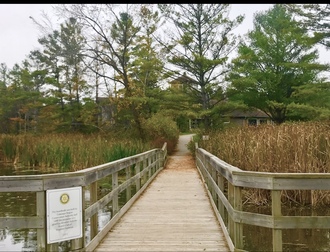

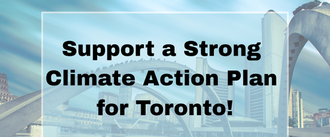
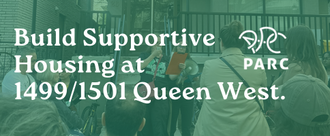.png)



